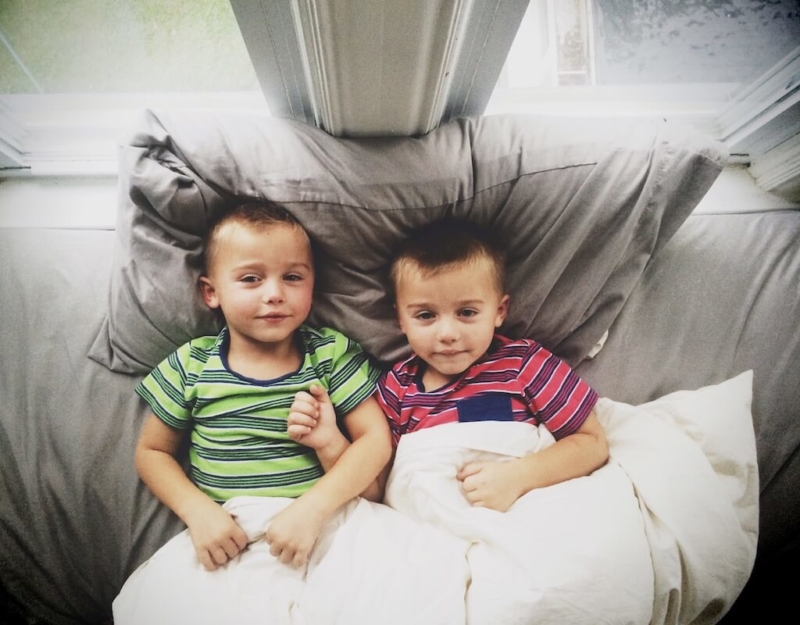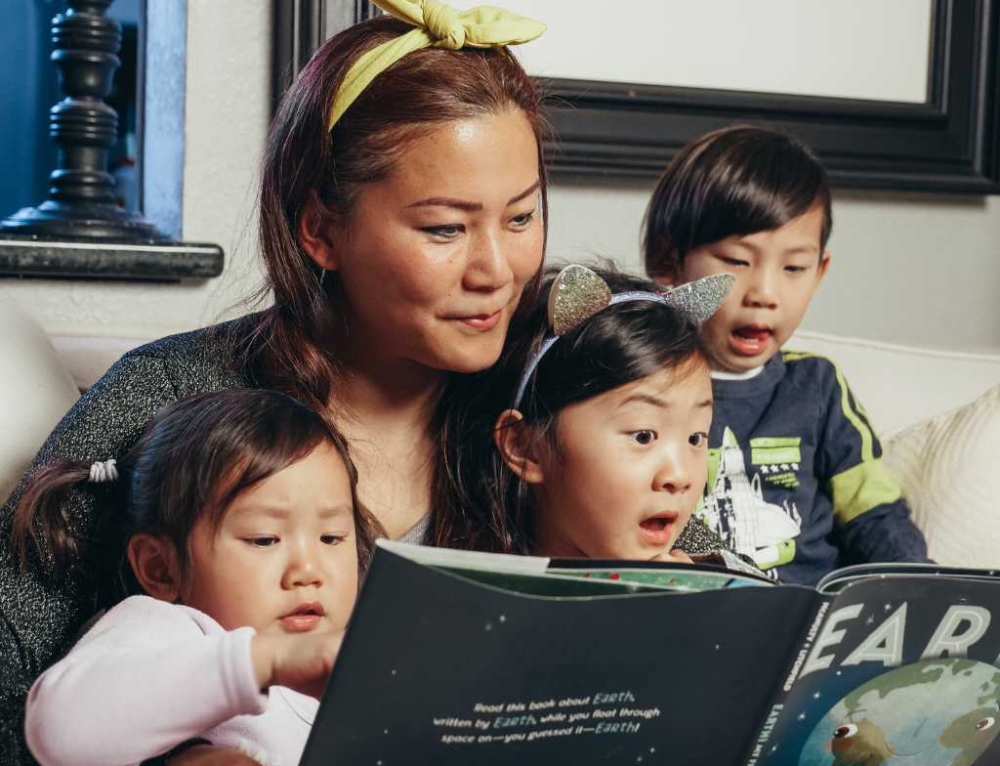At some point in school years, all parents face the tough choice of whether or not to send a sick child to school. In fact, school seems to be the place where diseases are caught, captured and sent home for all of us to experience.
Younger school-age children seem particularly susceptible to illness at school, especially if they haven’t spent much time in preschool or childcare centres and been exposed to most childhood illnesses.
Complaints of a headache, sore tummy, or aching makes most parents wonder whether the child is angling for time at home, worried about something at school, or is actually unwell.
Here’s Kidspot’s quick guide to when you should keep your child at home.
If your child is displaying one of the following symptoms you are best to keep them home.
Fever
This is one symptom that automatically rules out school, no questions. Your sick child should be fever-free without medication for at least 24 hours before you send them back to school. Keep your child home, making sure they drink plenty of fluids and can recover from whatever they are battling. Refer to COVID-19 notes above.
Diarrhoea
This could be a sign of a viral infection, so it’s best to keep your child at home. Diarrhoea can cause dehydration so keep offering clear fluids but avoid drinks containing sugar including fruit juices (dilute apple juice is ok).
Vomiting
Aside from the fact that your child won’t be comfortable, he could vomit again. Keep them home until he has gone 48 hours without vomiting as they may remain contagious until 48 hours after the last bout of sickness.
Cough
It depends on how severe the cough is. Coughs can spread infection to other students. A serious cough can also keep a child from getting a good night’s rest, which means they will be too tired for school in the morning. As a general rule, if your child has a serious wet cough, particularly if it’s accompanied by breathing troubles, seek medical advice. But if it’s just a mild, occasional cough and they have no other symptoms, they can probably go to school. Refer to COVID-19 notes above.
Rashes
Skin rashes could be a sign of a contagious infection, such as impetigo (school sores). You should have any rash that is itchy and sore, especially one that is getting worse, evaluated by a doctor before sending your child to school.
If it is impetigo, your child will need antibiotics and should stay home for another 24 hours or until the sores have dried up.
Conjunctivitis
Conjunctivitis is when the eyelids and eyes are red and swollen. If it becomes infected, and feels gritty and has a discharge, it is highly contagious and can easily spread from one child to another, as many parents of primary school-age children already know all too well. Keep your child home until the doctor says that they are no longer contagious.
Stomach ache
This one can be tough to call. If the child doesn’t have diarrhoea and isn’t constipated, tummy trouble could be caused by any number of things from anxiety to food poisoning.
Check how much fibre they are having as, even if they are not constipated, insufficient fibre can cause tummy pains.
If the stomach pains are minor enough to allow your child to continue walking and behaving normally – and there are no other symptoms – this is one of those times you could probably send them to school. Look for an opportunity to see if there is something on their mind.
Ear infection
As with coughs, you should evaluate all the symptoms before making the call. If the pain is mild they will likely be fine; but if they are clearly uncomfortable, keeping them at home and seeking medical advice is best. If there are any other accompanying symptoms such as a fever, swelling, or hearing loss, it’s a definite sick day with a call to the doctor.
Runny nose
If you kept your child home every time they had the sniffles, they would miss a lot of school. Use your judgment. If they have a runny nose but seem otherwise fine, then it’s probably okay for them to go to school (with a box of tissues ).
Trust your instincts. If your child seems lethargic and just not themself (if they’re not interested in playing, that is often a big clue), keep them home and monitor them for any signs of illness. Refer to COVID-19 notes above.







I really struggle with this. Obviously, vommiting and fevers are a no go for school but its the coughing that I’m never too sure about. I always feel like that will be so tired if they cough all night and think about spreading it to others. Its really a hard cool and it depends on age. I was more relaxed at primary school but then I work from home so don’t have to worry about time off but as they get older i’m having to rethink
I go with keep them home if it’s diarrhea or vomiting or a high fever as they are usually sleepy and when they are sleepy you just know they are not right. It’s hard when your working you are a bit harder on the kids if they are wanting to stay home I usually send them but tell them if they not feeling well get the teacher to call me once they get there they are good because they are busy. I think definitely having that exposure to early child hood centre’s gives them a good immunity boost for school.
We both work so it does make sickness a bit tricky though now I’m in a more flexible environment so I can work from home if needed. It’s so good to know that I can make safe choices for my kids and their school while still doing what needs doing. Generally though vomit and fever are definitely no school. Sniffles where they are happy as Larry and there’s no obvious infection or temperature, off to school they go.
Maybe it’s the time of the year where coming through the most stressful part to being able to relax a little but all 5 of us currently sick with a pretty yuck full on cold… Im glad however all of us for once have it together as usually it’s one of the kids pick it up from school then goes through the three of them and as they start to get better Dad will get it then me and because often Mr 3 shares my bed he will get it again and around it goes for a second time before completely out of the house. Can deff tell whwn the boys are genuinely sick as they just won’t get out of bed and their eyes get quite sunken in and almost life less looking… I swear by nurophen for kids it really helps the boys but reminding them just because the medicine has taken pain and temps away doesn’t mean their 100% well and still need to drink plenty of water and rest. I’m just glad we are getting the sickness now rather than later in the year when weather is miserable as well.
Well this week I have had all 3 home from school at different times I’m hoping they will be fine tomorrow this is a great article to decide when or not send them to school and very true. For all of those things I keep them home tummy pains can be a weird one though as you never know how bad they really are. I have sent one to school Monday as she said her tummy felt better only to be rung at lunch time and tummy felt sore again so it’s hard as a parent to decide to stay home or go to school.
We might be woosies but we keep our daughter at home if she’s sick, even if it’s just a bit of a cough and runny nose. At the moment hubby doesn’t work (has been stay at home Dad) so making the most of not having to send her when she is sick 🙂